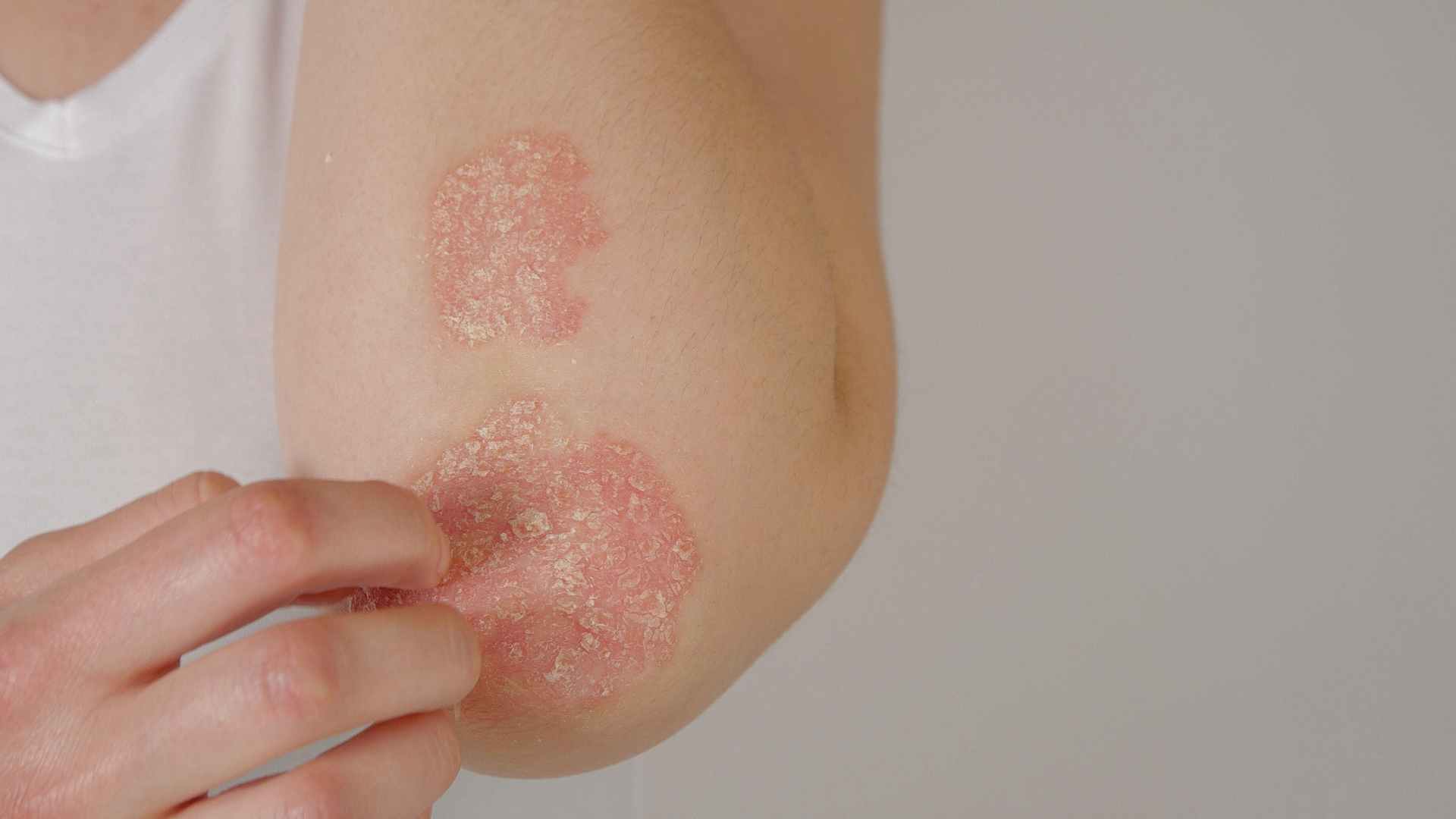What is Psoriasis? – Causes and Management Strategies

Have you ever noticed red and scaly patches on the skin and wondered what they could be? This might be Psoriasis, a common skin condition. Psoriasis is more than a skin problem where the body’s immune system goes haywire causing the skin cells to grow too fast. Normally, it takes a month for the skin cells to grow and shed. But in Psoriasis, this process speeds up to a few days. This causes red scaly patches to develop on the skin’s surface, which causes itchiness. To bust the myth, Psoriasis is not at all contagious. The exact cause of this skin condition is not known; however, stress, infections, and other certain triggers can worsen it.
Psoriasis does not have a cure, however, there are various treatments and methods that can help manage it. Let’s understand some of the causes that can lead to Psoriasis.
CAUSES OF PSORIASIS
The causes are not yet fully understood. They are believed to be a combination of genetic, environmental, and immune system factors. There is a possibility of autoinflammation in the early phases of Psoriasis. In recent times, some authors have pointed toward it. Let’s look at some of the key factors.
Genetics
Psoriasis has a tendency to run down in families. If either of the parents has Psoriasis, the risk of their children developing this condition increases. This explains a genetic tendency.
Immune System Dysfunction
Psoriasis is an autoimmune disorder. This means that the immune system mistakenly attacks the healthy cells. In individuals suffering from Psoriasis, a certain type of immune cells called T cells, become overactive. These cells trigger inflammation and cause the skin cells to grow rapidly.
Triggers
There are certain factors that can trigger flare-ups or worsen Psoriasis. These include stress, skin injuries, smoking, and cold weather.
Environment and Lifestyle
A lifestyle involving obesity, smoking, and alcohol consumption can worsen the condition. The environment also plays a crucial role in worsening the condition. Factors such as exposure to sunlight, and climate can influence Psoriasis.
TYPES OF PSORIASIS
Psoriasis can occur in many forms, each form having its unique characteristics.
Plaque Psoriasis
This is the most common type. The patches are red and raised, and are covered with silver-white scales.
Guttate Psoriasis
This type is often triggered by bacterial infections. It looks like small, drop-like lesions on the skin.
Inverse Psoriasis
This type is found in skin folds like armpits, under the breast, and groin. It looks like smooth red patches.
Erythrodermic Psoriasis
This is a very severe and rare form of Psoriasis that affects the entire body. It causes redness, peeling, and itching of the skin.
Pustular Psoriasis
This type has pus-filled blisters usually on the hands and feet.
MANAGEMENT STRATEGIES
Psoriasis has no cure. However, certain management strategies can help keep the condition under control. This can improve the quality of life of the individuals living with this condition.
Moisturize
Keep the skin well moisturized. This reduces the irritation, dryness, and itching. Use a gentle non-comedogenic moisturizer for better results.
Phototherapy
Controlled exposure to ultraviolet light is known to be beneficial to treat Psoriasis. Phototherapy under medical supervision slows the excessive growth of the cells leading to reduced inflammation.
Topical Treatments
This type of treatment includes lotions and ointments which are directly applied to the affected area. They reduce itching, scaling, and inflammation of the skin. Some of the common topical treatments include retinoids, moisturizers, vitamin D analogs, and corticosteroids.
Medications
For severe cases, doctors may prescribe oral or injectable medications. These medications suppress the immune system, reduce inflammation, and slow down the growth rate of the skin cells. Cyclosporine, methotrexate, and biologics are some of the medications that are included in it.
Lifestyle
A healthy lifestyle is the key. It goes down a long way in reducing the symptoms of Psoriasis. A balanced diet, stress management, and regular exercise can reduce and soothe inflammation.
Psoriasis is more than a skin condition caused by an overactive immune system. Understand the causes and triggers well, and you can manage Psoriasis effectively. It is quite distressing to live with Psoriasis, however, with the right management, you can keep the symptoms under control. If you suspect any symptoms, consult a dermatologist to diagnose the condition and get a personalized treatment.
